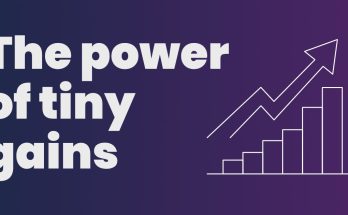Search Engine Optimization (SEO) remains one of the most essential digital marketing strategies for small businesses, and its importance will only continue to grow in 2025. With more consumers turning to search engines to find products and services, getting your business to rank higher on platforms like Google can significantly impact your visibility, customer acquisition, and revenue. The good news is that small businesses can harness SEO to their advantage without needing a massive marketing budget.
In 2025, SEO is about more than just keyword ranking—it’s about providing valuable content, optimizing for user experience, and leveraging advanced tools and strategies. Let’s break down the key SEO basics every small business should understand in 2025.
1. Understanding the Importance of SEO
In 2025, SEO is more than just a buzzword—it’s a cornerstone of digital marketing. Nearly 93% of online experiences begin with a search engine, and businesses that appear on the first page of Google are more likely to attract customers. With countless competitors online, small businesses can’t afford to ignore SEO if they want to stay competitive and be discovered by their target audience.
Unlike paid advertising, SEO focuses on organic traffic. This means that by optimizing your website, you can attract visitors without paying for every click. By ranking higher for relevant keywords, you can build trust, boost credibility, and gain more qualified leads over time.
2. Focus on User Experience (UX)
In 2025, Google’s algorithm continues to prioritize websites that offer the best user experience. Websites that load quickly, are easy to navigate, and provide valuable content will rank higher. In fact, Google’s Core Web Vitals, which assess page loading performance, interactivity, and visual stability, are critical factors in determining rankings.
To improve your website’s UX:
Make sure your website is mobile-friendly: With mobile searches outpacing desktop searches, a mobile-responsive design is essential. Test your website’s mobile performance and ensure that your content adapts to various screen sizes.
Improve page load times: Slow-loading pages frustrate users and lead to high bounce rates. Use tools like Google PageSpeed Insights to test and optimize page speeds.
Simplify navigation: Ensure that your website is easy to navigate with a clear structure. A well-organized website encourages users to stay longer, reducing bounce rates and increasing engagement.
3. Keyword Research Is Still Key
Even in 2025, keyword research remains the foundation of a solid SEO strategy. Understanding the search terms that potential customers use to find products or services like yours can help you optimize your content effectively. However, SEO in 2025 involves more than just targeting basic keywords—it’s about understanding the intent behind the search.
Focus on long-tail keywords: These are more specific search phrases that tend to have lower competition. For instance, instead of targeting “SEO services,” a small business might target “affordable SEO services for local businesses in [city].”
User intent matters: People search for information, products, or services with specific intentions. Aim to create content that answers their questions, solves their problems, or guides them toward a purchase. The more relevant your content is to their needs, the better your rankings will be.
Voice search optimization: With the rise of virtual assistants like Siri and Alexa, voice search is becoming more common. Optimize for conversational phrases that people might use in voice queries, such as “Where can I buy eco-friendly products near me?”
Tools like Google Keyword Planner, Ubersuggest, or SEMrush can help you discover the right keywords for your business.
4. Content Is King
Content marketing and SEO go hand in hand, and in 2025, high-quality, relevant content is still one of the most effective ways to boost your rankings. Whether it’s blog posts, videos, or infographics, providing valuable and informative content helps search engines understand your website and increases the likelihood of backlinks.
To improve your content strategy:
Create high-quality blog posts: Write articles that are informative, relevant, and answer common questions your target audience might have. Well-researched, well-written content attracts more visitors and encourages engagement.
Incorporate multimedia: Video content, infographics, and images help enhance user experience and increase engagement on your website. Video also has a significant impact on rankings, especially when it’s hosted on platforms like YouTube and embedded on your site.
Update old content: Refresh old blog posts or articles with updated information. Google loves fresh content, and updating old content can improve its ranking potential.
5. Local SEO for Small Businesses
In 2025, local SEO has become increasingly important for small businesses, especially those with a physical presence. More customers are conducting local searches to find businesses near them, which means optimizing your website and online profiles for local visibility is crucial.
Claim and optimize your Google My Business profile: A fully optimized Google My Business (GMB) profile can significantly boost your local search visibility. Ensure your GMB profile is complete with your business name, address, phone number, hours of operation, and services. Regularly update your profile with photos and posts to engage your local audience.
Encourage online reviews: Positive reviews on Google, Yelp, or other review platforms can improve your local rankings and influence potential customers’ decisions. Encourage satisfied customers to leave reviews and respond to feedback promptly.
Local citations: Ensure your business information is consistent across local directories and websites. Listings on platforms like Yelp, Yellow Pages, and local Chamber of Commerce sites help improve your local SEO.
6. The Importance of Backlinks
Backlinks, or links from other websites to yours, remain a key ranking factor for SEO in 2025. Quality backlinks signal to search engines that your content is authoritative and trustworthy. The more high-quality backlinks you have, the more likely your website will rank higher.
To build backlinks:
Guest post on reputable blogs or websites in your industry and include a link back to your site.
Create shareable content that others in your industry or community will want to link to.
Build relationships with influencers or other businesses in your industry to earn backlinks naturally.
7. Keep Up with SEO Trends
SEO is always evolving, so it’s essential to stay informed about the latest trends and algorithm changes. In 2025, voice search, AI-generated content, and video optimization are likely to become even more influential. Regularly read SEO blogs, attend webinars, and keep testing your SEO strategies to stay ahead of the curve.
Final Thoughts
SEO for small businesses in 2025 requires a holistic approach, focusing on the user experience, quality content, local optimization, and ongoing adaptability. By understanding SEO basics and incorporating them into your business strategy, you can increase your visibility, attract more customers, and achieve long-term success.
By staying focused on high-quality content, optimizing for local searches, and keeping up with SEO trends, your small business can thrive in the competitive digital landscape of 2025.




